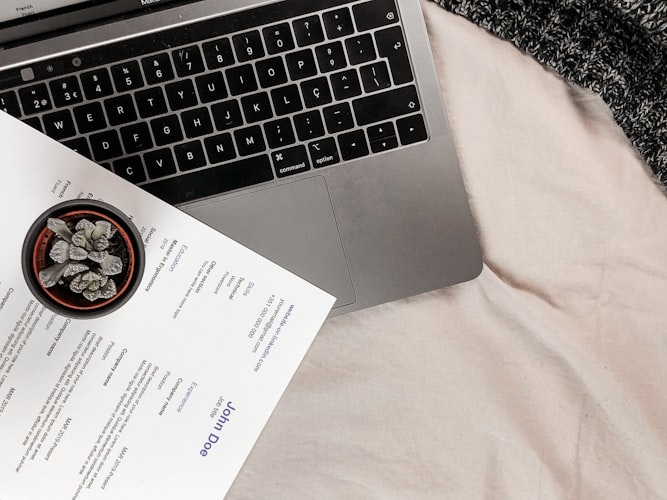Creating a professional, thorough resume is one of the most important parts of landing the job of your dreams. A good resume is precise and employer-focused, allowing the person in charge of hiring to see what kind of employee you are in one glance.
Although every section on a resume is essential to your success, the skills heading is one of the most overlooked parts. Many people add a few positive character traits or work skills and move on to another section; however, this can cost you the opportunity to interview with several companies.
There are several soft skills that employers across the board look for in potential candidates in the modern working environment, so you should include them on your resume to increase your chances of landing an interview. These are the eight best job skills to put on a resume to ensure success.
1. Organization Skills
It is important to let potential employers know that you have top-notch organizational skills. The ability to organize lets them know that you take a controlled, step-by-step approach to complete tasks. You show attention to detail and develop processes that allow for efficiency and consistency. Organization skills also show employers that you have a good work ethic, are responsible, have good time management, and are not prone to chaos or procrastination.
2. Communication Skills
Communication skills are among the most necessary skills for job seekers today. Communication skills include writing, speaking, and typing. Include communication in the skills section of your resume to show that you know how to relay messages clearly and engage in productive, professional conversations in the workplace. In-action examples of communication skills include:
- Training employees
- Negotiating sales
- Making office presentations
- Phones call or emailing
3. Teamwork Skills
Most hiring managers are looking for someone who has good teamwork skills and can add to the collaborative workplace culture. Make sure you include any teamwork skills you have, such as being a team player, keeping a positive outlook, providing motivation for others, and being willing to collaborate on your resume list.
Additionally, include any self-management skills you have as well. It may seem contradictory, but those who are the best asset to a team are people who can multitask, manage their own time, and keep themselves motivated so that they do their part to uphold the team.
4. Learning Skills
No list of skills on your resume would be complete without including your learning skills. Learning skills can also be thought of as your ability to adapt and your commitment to personal and professional growth.
Employers want someone who can change with new technologies and isn’t afraid to learn something they don’t know. They also look for candidates who are comfortable taking on new information and implementing it as part of their job description.
5. Computer Skills
Almost every job today utilizes some sort of computer technology, and the more specific experience you have with computers, the more positions will be available to you. List any computer programs you are familiar with, as well as any marketing platforms, communication apps, or other computer features that employers would find useful.
6. Leadership Skills
Hiring managers always look for leadership skills in candidates. Leadership skills show that you are a self-starter and can inspire others to perform. Leadership skills consist of strong decision-making abilities, delegating and managing team members, and using creativity and innovative thinking to solve problems that arise on the job.
If you have spent time in any managerial or leadership role, put it down on your resume. This can be official management experience at a previous employer, but it can also include experiences like leading a group at camp, student council, or leading a project or group outside of work or academics.
7. Interpersonal Skills
Interpersonal skills refer to your ability to interact with other people. Employers don’t want to hire someone who causes workplace drama or has difficulty interacting with other employees. They look for people with strong abilities to read the non-verbal language of others and who are consistently reliable in the workplace. If you have strong interpersonal skills, list them on your resume. Interpersonal skills may include things like:
- Active listening
- Empathy
- Flexibility
- Motivation
- Patience
- Dependability
8. Customer Service Skills
Even if you aren’t applying to work directly with customers, customer service skills are some of the best to put on your resume. Working with customers helps you develop a tough skin, the ability to solve problems, be patient, and find solutions that work for the business and the customer. Customer service skills also include developing a sense of self-control, especially when you’ve worked in spaces where you had to handle customer complaints with politeness and compassion.
Include Hard Skills
In addition to soft skills, it’s appropriate to incorporate your hard skills into your resume skill list. Hard skills are anchored in work experience, repetition, and education and can typically be outwardly assessed. They are transferable skills that you have trained in and can bring with you to your new position.
Examples of hard skills are programming languages on a computer, proficiency in data analysis, accounting or bookkeeping, data privacy, multilingualism, research skills, SEO optimization, typing skills, and writing and editing.
Deciding Which Skills to Include
When deciding the skills you want to include on your resume, there are a few elements to consider.
Job Market
When compiling a list of skills to include on your resume, it is vitally important that you understand the current job market and what employers are looking for. Include skills that speak to overarching themes employers desire in new employees, such as a willingness to adapt, comfortability with virtual technologies, and interpersonal skills that create an inclusive, safe working environment.
Desired Position
To narrow down the top skills to include on your resume, one of the best things you can do is consider the position that you are applying for and tailor the skills you list to that position. While any skill is a good skill, honing in on specific skills to your desired position can help you stand out to employers.
For instance, if you hope to be hired as a chef at a five-star restaurant, you should highlight any hard skills you learned while earning your culinary certifications or degrees. You would also want to include skills like organization, time management, leadership, and interpersonal skills.
Conversely, if you are looking for a career in nursing or education, you might choose to highlight your interpersonal skills like empathy, learning skills like adaptability, or management skills necessary to run a classroom.
If you are going for a creative position in the graphic design industry or a career in journalism, you’d want to bring attention to your computer skills, writing and editing skills, and the ability to self-motivate or be a productive part of a collaborative team.
Genuine Experience
When you choose a list of skills to put on your resume, it is wise to list those skills with which you have genuine experience. If you aren’t sure what skills you have, start by researching a list of job skills online. Pick several that you know you have developed during your school and work experiences and write them down. From that list, choose the hard and soft skills that speak directly to the position you are applying for. This will help you develop a master list of your real-life job skills that you can pick from when formatting your resume.
Ability to Provide Examples
Just as genuine experience is important, it is equally important that the skills you include on your resume are backed by examples. Although you won’t put your examples down on your resume, you will likely be asked to explain your skill further in an interview. Whichever skills you choose to include, think of past situations where you used this skill in your work.
For example, if you include customer service skills on your resume, think about an anecdote that you can share with your interviewer that shows exactly how you implemented that skill. Likewise, if you include writing and editing skills on your resume, prepare samples that demonstrate your skill and bring them to your interview.
Put Your Job Skills to Work
The job skills you put on your resume can make or break your chance to interview for your dream job. Knowing the eight best job skills to put on a resume can be a helpful guide to choosing which type of skills you are strongest in and including them on your resume.
Once you align your skill set with these overarching skills that employers are looking for, head over to jobsfuel.com, where you can find jobs that match perfectly with the skills that you bring to the table.





